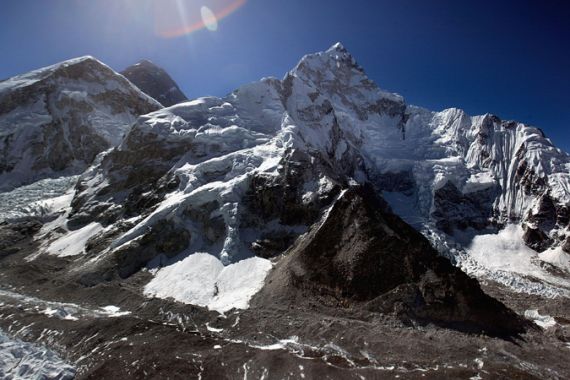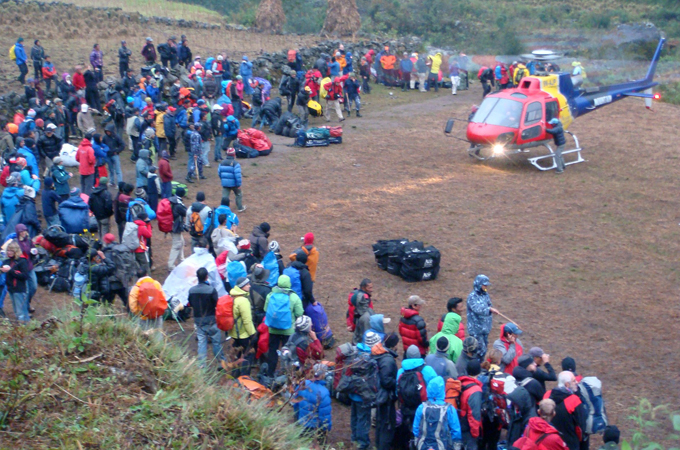Everest revealed: relieved tourists head home
The impact of a week of fog on the tourist industry surrounding the world’s highest mountain

 |
| Trekkers await rescue by helicopter at Lukla [AFP] |
Imagine it. The trip of a lifetime. Everest! The highest mountain on the planet, all 8,840 metres (29,002 feet) of it. Imperious! Majestic! The only trouble is you cannot see any of it.
Unfortunately poor visibility is one of the many potential hazards when attempting to approach this vast and imposing peak – as more than 2,000 foreign trekkers have found to their cost for more than a week. For much of that time Everest has been shrouded in thick fog.
Keep reading
list of 4 itemsBoeing hit with 32 whistleblower claims, as dead worker’s case reviewed
US imposes new sanctions on Iran after attack on Israel
A flash flood and a quiet sale highlight India’s Sikkim’s hydro problems
Late October and November is the peak of the trekking season. (Fortunately though, climbers are largely absent until their season builds towards its peak in May.)
The impact of such bad weather has been far greater than many of us could realise. Everest is a major source of income in Nepal and a vast climbing and tourism industry surrounds it. In 2010, for example, there were more than 32,000 visitors to the region, relying on the back-up of 80,000 others including at least 3,000 sherpas.
The requirement to feed and water so many stranded tourists became a major problem as food supplies began to run low. Accommodation was also in very short supply with tourists forced to sleep in tents and on the floors of hotel dining rooms.
Many of the tourists were located at Lukla which is home to the regions Tenzing-Hillary Airport. This tiny airfield became the focus of much activity when the fog finally began to thin sufficiently to allow flights to resume on Monday.
 |
| Trekkers returning from fog-bound Mount Everest [AFP] |
The airfield was a hive of activity once flights finally got the go-ahead. The short runway necessitates planes with carry capacities of no more than 18 passengers. More than 20 flights took off from the airport on Monday morning alone, ferrying tired trekkers back to Katmandu so that they could begin their homeward journeys, no doubt tired and rather frustrated.